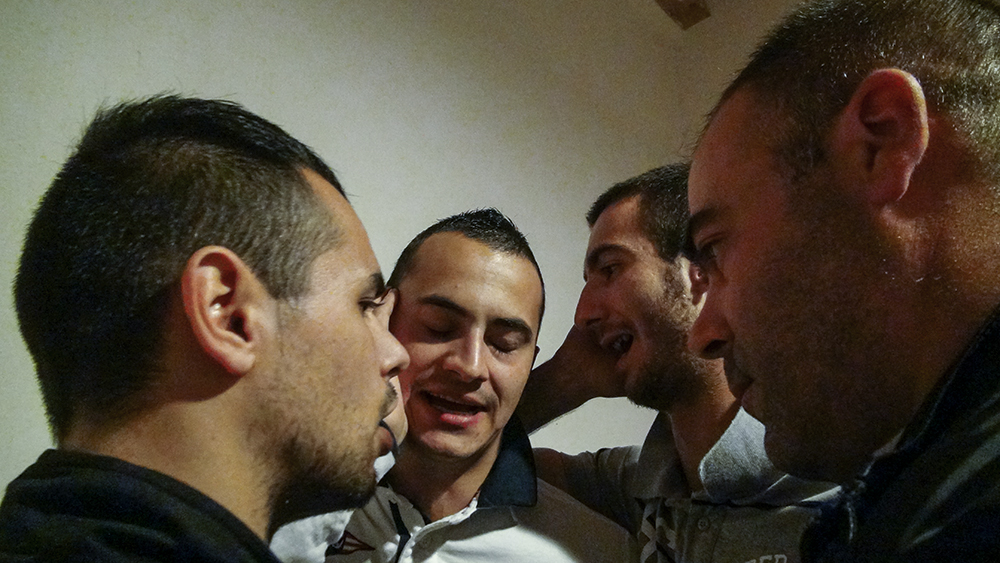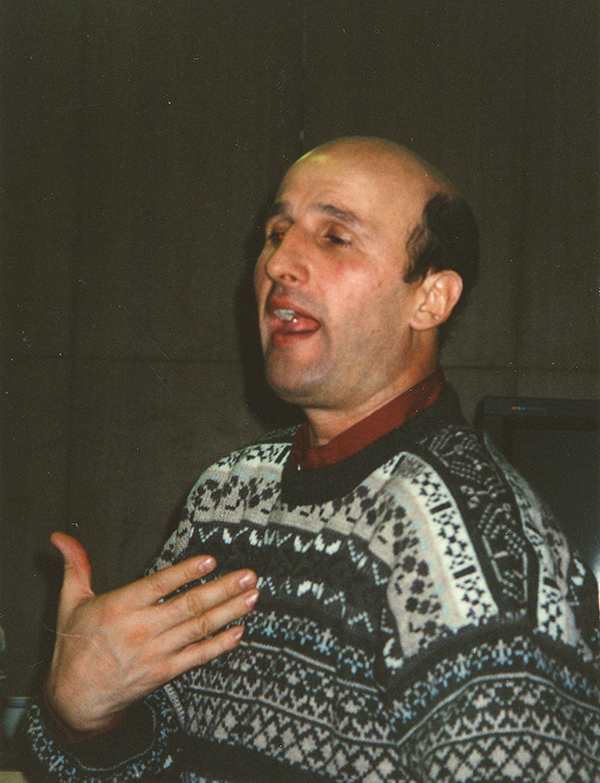Ursula Hemetek, of the mdw’s Department of Folk Music Research and Ethnomusicology, provides the mdw Magazine with some insights on singing’s significance—and in light of a few central theses, she points out why we should all take it up … ideally, right away!

In ethnomusicology and research on folk music, a very central topic is singing as a form of cultural expression. In any type of field research, one experiences how people sing, even in an era where more and more of all kinds of media are appearing to replace what really can be viewed as a primal means of musical expression among human beings—regardless of the cultural sphere in question.
Thesis 1: Singing is healthy
“It’s proven that singing people enjoy significantly better psychological health, on average, than non-singing people.”1 This sentence is from a diploma thesis done at the Department of Folk Music Research and Ethnomusicology. It’s author, Katharina Einsiedl, backs it up by quoting relevant literature that cites the positive effects of singing on the immune system, brain function, and one’s emotional state. It is about the act of singing itself, here. It’s an approach that’s inherently consistent, and it’s a view that people who share the experience of singing will probably confirm.
Thesis 2: Singing structures life

In folk music research and ethnomusicology, vocal music plays a very important role because singing uses the body as an instrument; this makes it a very direct, personal form of musical expression that’s accessible to all people from early childhood. The research looks at music in a social context. Here, the traditions and individual acts—collective or individual—that accompany one’s life or the yearly calendar play an important role. Such a perspective reveals a great number and variety of songs and/or other vocal forms of expression: singing accompanies births, weddings, and deaths, and celebrations such as Christmas would hardly be imaginable without the associated songs. Singing is an essential component of traditions, and mothers all around the world sing their children to sleep—albeit with differing repertoire. Singing can also become a sort of “sustenance”, like for displaced people who can use it to re-anchor themselves.
Thesis 3: Singing eases learning
Instruction in many of the world’s forms of instrumental music begins with singing. In the classical music of northern India, for instance, singing is the first step in the traditional method of learning to play the sitar. Pupils first learn the music’s structural principles (the raga system) by singing before they are allowed to transfer them to the instrument. Depending on a pupil’s progress, this phase can last up to a year. This learning method allows content to take root much more easily. And this virtue is essential particularly with types of music that (like most of our world’s music) function not via notation but instead based on memory as the storage medium from which everything is retrieved during actual music-making.
Thesis 4: Singing is effective

Political and religious authorities worldwide are fond of employing singing as a political and strategic tool—especially for mass events. The emotional impact of singing as part of a large group of people is difficult to resist. National anthems quite naturally play an important role in demonstrations of political power. But singing is also put to use in efforts to resist such political power apparatuses. The so-called Singing Revolution in the Baltic states—an ultimately successful act of resistance to Soviet domination—can be viewed as one example among a great many.
This final thesis shows clearly that what gets sung is not irrelevant. Musical language and structure can become symbols that harmonise or clash with the power of nations, political stances, and/or religious content. Therefore, the matter of repertoire absolutely should be given attention and thought. But singing as such, in any case, is something that needs to be advocated—singing alone or together, spontaneously or directed, in class or in private, and especially at the mdw—because, as Georg Philipp Telemann (1681–1767) once put it: “Singing is the foundation of music in all things.”
1 Einsiedl, Katharina. 2013. Von der Bedeutung des Volksliedersingens im Alltag. Diplomarbeit an der mdw – Universität für Musik und darstellende Kunst Wien. S.19

